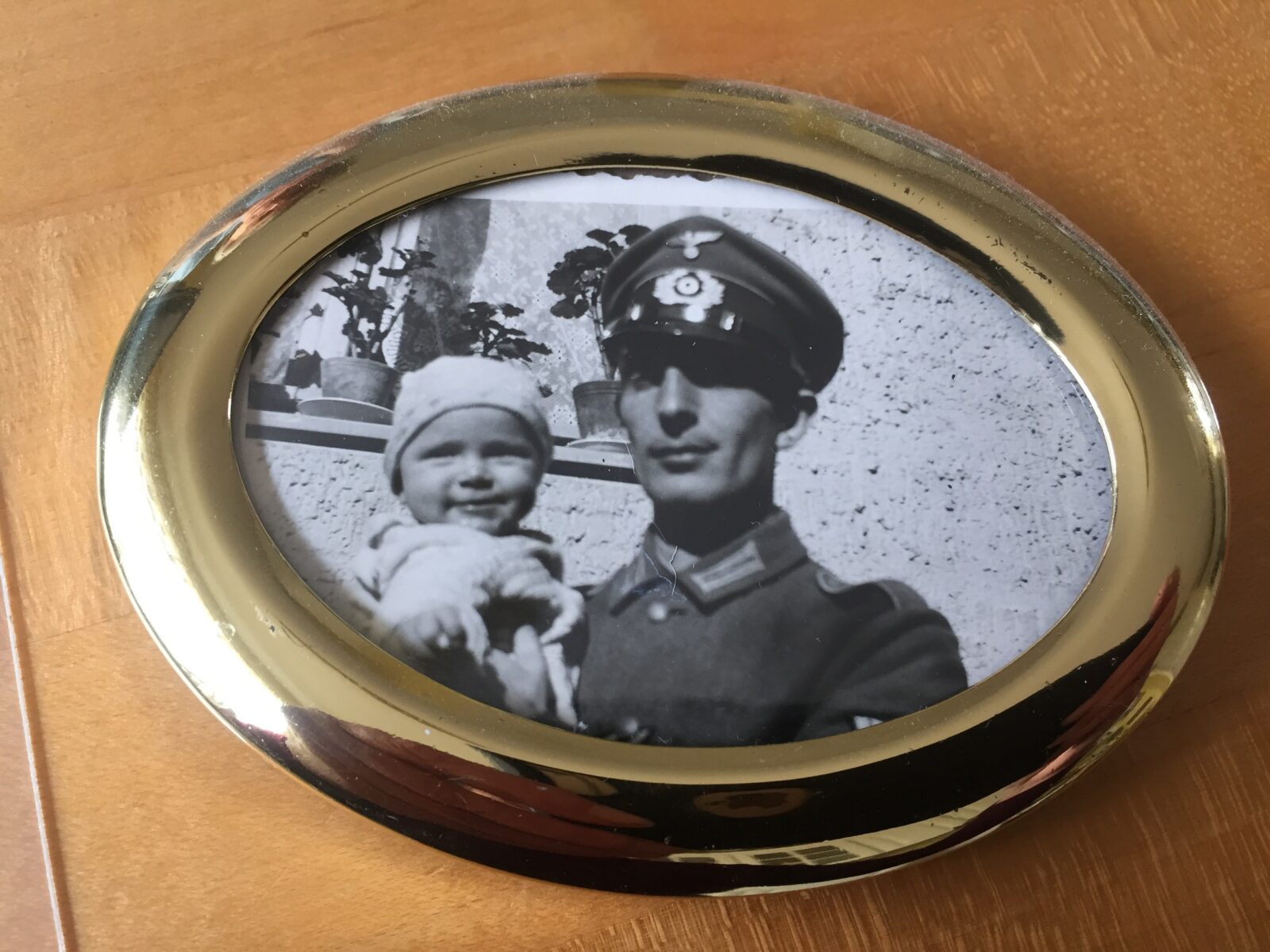Last summer, Rosemarie Baechtel was stunned when she heard what the white nationalist marchers in Charlottesville were chanting:
“Blood and soil – blut und boden,” she said with undisguised disgust. “They should come up with something new, not that old Nazi stuff. It scares me that white supremacists are really coming up again. And ‘good people’ on both sides? Yeah? What was Trump talking about? Those are not good people, and they are getting power here, getting support from that administration. We must pay attention.”
Rose, as she is known by friends and family, is familiar with what can happen when such people gain control of governments. Although she and her husband Don – a veteran who was working in civilian intelligence in Germany when she met him – have lived in Knox County since 1991, she was born in Germany in 1944. It was a terrible time.
“My oldest sister had to carry me down in the basement when there was a bomb alert. There was even a bomb alert when my mom went into labor, and she went herself to the midwife. We didn’t have phones yet at that time. Nobody answered the doorbell and the midwife looked out and said, ‘Oh, it’s you. Go home, fast. I’ll come and meet you.’ She picked my name.”
The wall behind Rose’s kitchen table is covered with family photographs, one of which shows a smiling toddler in a man’s arms. The baby is beautiful, the father looks proud. He is a soldier and the imperial eagle perched on a swastika on his cap is startling to American eyes. No one looking at the portrait could guess that he is blind.

Rose and Don Baechtel at home.
“He was blinded in the war,” Rose said. “He never saw me.”
After the war, Johannes Schroeder, an accomplished man with many interests, returned to his family in their hometown, Jena, and to his job at Zeiss, a manufacturer of optical systems, industrial measurements and medical devices used around the world. Rose still feels proud when she sees that name on a precision instrument.
But there wasn’t much relief after the war, because Jena was in East Germany, which was occupied by the Russians, who came marching into town aching for revenge.
“They came in tanks,” Rose said. “Later, the whole people from Zeiss took to the streets. My dad’s crew workers took him with them marching…”
Americans didn’t harbor the same kinds of grudges against the Germans as the Russians did, but Rose said there was a reason for that.
“The Americans could treat the Germans decent. Germans didn’t bomb anybody in America, and they came with a totally different attitude. The Russians suffered and they hated the Germans. Most of those Russians were poor, poor, poor. Most of them didn’t even know about indoor plumbing. My mom was always telling us, watch out. They raped women a lot, and stuff like that, you know. … But it was because of what Germans did.”

Rose Baechtel at last month’s women’s march in Knoxville. (Photo by Sonja Cowsert)
She reveres Claus von Stauffenberg, the German officer who led the failed plot to assassinate Hitler the year she was born and was executed for his effort.
“Von Stauffenberg tried to kill Adolph on the 20th of July. That date is always remembered,” Rose said.
“They hung him up on a meat hook,” said Don, who described his job in Germany as “keeping an eye on the Russians.”
Rose said that post-war Germany faced up to its history – “We always talked about the history, what the Germans did. Nobody was singing, ‘I’m proud to be German.’ The way I feel now about being German is the best I ever felt about it.”
The Schroeders eventually escaped to West Germany and Johannes was able to get veterans’ benefits that the East German government denied him. Rose was determined to get an education despite marrying young and badly and eventually divorcing. She met Don in 1982 and married him in 1986, five years before he retired and moved his new family to the United States. They studied possible locations and picked Knoxville over Asheville and Atlanta. Rose became a citizen as soon as she could because she was anxious to be able to vote. She is a voracious consumer of news and politics.
Last year, her daughter Sonja participated in the women’s march in Washington. Just before Christmas, she told Rose that she was going to stay home and march in Knoxville this year. Rose decided she wanted to get involved.
“I asked her to pick me up and take me with her. For Christmas she got me that pink yarn and said, ‘Knit your own hat.’ And I did. I made it.”
A day or two later, Sonja Cowsert posted a Facebook message and a picture of a woman in a pink hat holding a sign that says “Enough.”
“This is my mother. She’s 74 years old. She was born in Germany at the end of WWII. As a teenager she fled East Germany for West Germany. She married my American stepfather and immigrated to the U.S. Not an easy task with a swastika on your birth certificate, a hammer and sickle on other documents and a husband with a security clearance. She became an American citizen 20 years ago. This lady is living history and has been moved enough by recent events to take to the streets for the first time in her very eventful life. And I am so very proud of her.”

